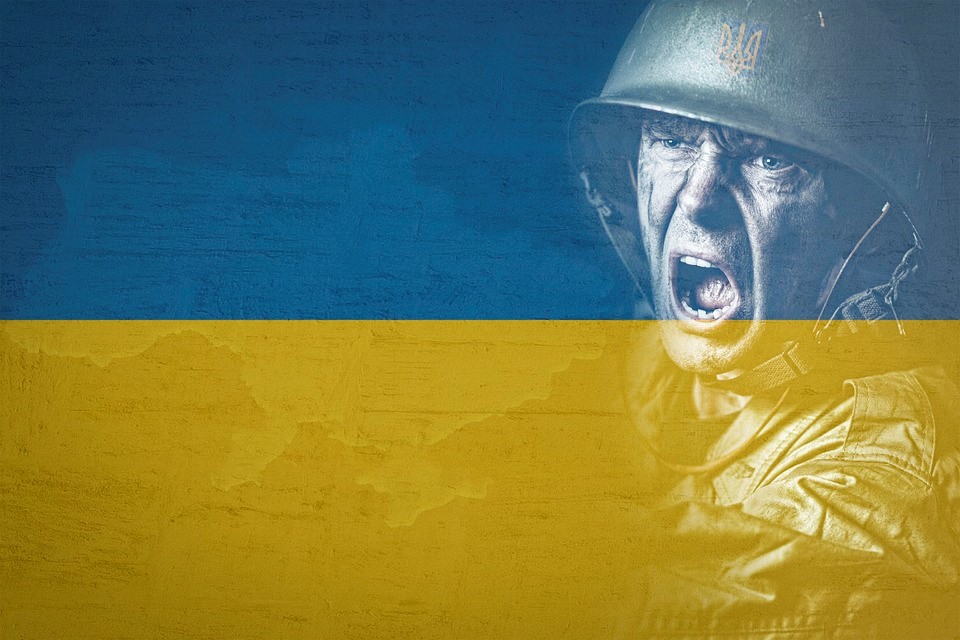Putin’s war is costing his country enormous amounts of money and, to date, over 43,000 Russian lives. At the one-year mark Boris Grozovski, a Russian economics expert from the Wilson Center, estimated that Russian military expenditures surpassed $9 trillion and are continuing to rise at a staggering rate. The total cost to run the Russian government, according Moscow’s latest annual spending plan in 2022, is $299.9 billion USD. An additional $46.1 billion is allotted for the war and $36.9 billion for police and security services. There is no end in sight for the war or the country’s economic troubles. Now Putin is asking Russians to pay more for his war effort despite the country’s lackluster economy.
Skyrocketing military expenses are becoming harder to hide. Sergey Sukhankin, of the Jamestown Foundation, points out this week that Russian sources believe the budget deficit in 2023 could exceed $51.2 billion USD. He says that economic troubles are also visible on two other levels. “At the regional level, the situation has been described as ‘dangerous.’” Last October, estimates indicate that the amount of income tax revenues in regional budgets fell by 40.2 percent. He adds that “At the corporate level, even traditionally privileged large companies and natural monopolies are seemingly no longer feeling as confident; the Russian government has already exercised its power, forcing some of them to share profits to cover war expenses.”
To cover its mounting war expenses, Moscow is levying additional charges and taxes on the country’s largest businesses. Irina Malkova and Alexandra Chunova, writing in the Russian news outlet The Bell, reported in February that Russian Prime Minister Mikhail Mishustin proposed combating the growing budget deficit through introducing a “mobilization tax.” The goal of the Russian Ministry of Finance is to raise $3.6 billion by taxing large companies (excluding those in the energy sector) that earned the highest profits in 2021-2022. Minister of Finance Anton Siluanov announced the plan in an interview with the Russia-24 state-owned news channel in February. The remaining question is concerns the form of the so-called “windfall tax.” Sukhankin notes that “while little concrete information is available on what these businesses might ask in return for the ‘war tax,’ some bits and pieces of information coming from Russia point to two measures that the Russian government could undertake to compensate oligarchs for their financial assistance.”
Deputy Finance Minister Alexey Moiseev told the Moscow Times in March that the Russian state could lift all restrictions on currency transfers—currently, no more than $1 million per month may be transferred abroad—for Russian businessmen. Second, some Russian authorities are bantering around a “Gosplan 2.0,” that recreates a Soviet-style system of economy favored by the oligarchs due to the exclusive, almost monopolistic rights they would receive in specific industries. According to analysts familiar with the domestic economic environment, a majority of large businesses in Russia support an increased role for the state. Sukhankin notes that a study published by the State University of Management showed that 78.5 percent of respondents (the survey was conducted among mid- to high-level management) positively assessed the prospect of short-term (five years) as well as mid- and long-term central planning, which would be established and managed by the state. The respondents, he says, did not argue specifically for the implementation of a Soviet-style planning (Gosplan), yet supported the introduction of “serious strategic planning for the successful development of the Russian economy.”
Managers in general agreed that it would be almost impossible for large Russian businesses to overcome the consequences of Western sanctions without the state acquiring a larger role in managing available scarce resources and giving directions for further development. Last week The Moscow Times noted that the head of the study, adviser to the rectorate of the State University of Ukraine Sergey Chuev, assured the Russian people that this is not about the revival of the Soviet state plan, but about “serious” strategic planning for the “successful development” of the economy. If Moscow moves to take greater control, it comes with a number of risks. Political analysts in Washington point out that the move will strengthen special interest groups that have their own political and economic agendas.
On February 14,The Moscow Times reported that several leading Russian universities, including Bauman Moscow State Technical University, Plekhanov Russian University of Economics, Moscow State University and Moscow University of Finance and Law—have already started working on a “digital Gosplan” that envisages a return to the Soviet-style five-year plans. Sukhankin says that a pilot “digital Gosplan is in the planning stages for a later 2023 launch in priority areas, including import substitution and “will later be extended to petrochemicals, agriculture, transportation and medicine.”
The Russian economy is in a fragile state. Moscow’s ability to repair it is more constrained than officials inside the Kremlin admit. Second, it appears the government is ready to expand and transform the economy via a Soviet-style Gosplan. Most significant to the long-term health of the Russian Federation is that with its limited resources and rising special interest groups, an internal struggle for power and influence is likely to deepen within the corridors of power in Moscow over the coming year. The consequences of such instability could reverberate throughout Europe.
Daria Novak served in the U.S. State Department
Illustration: Pixabay
